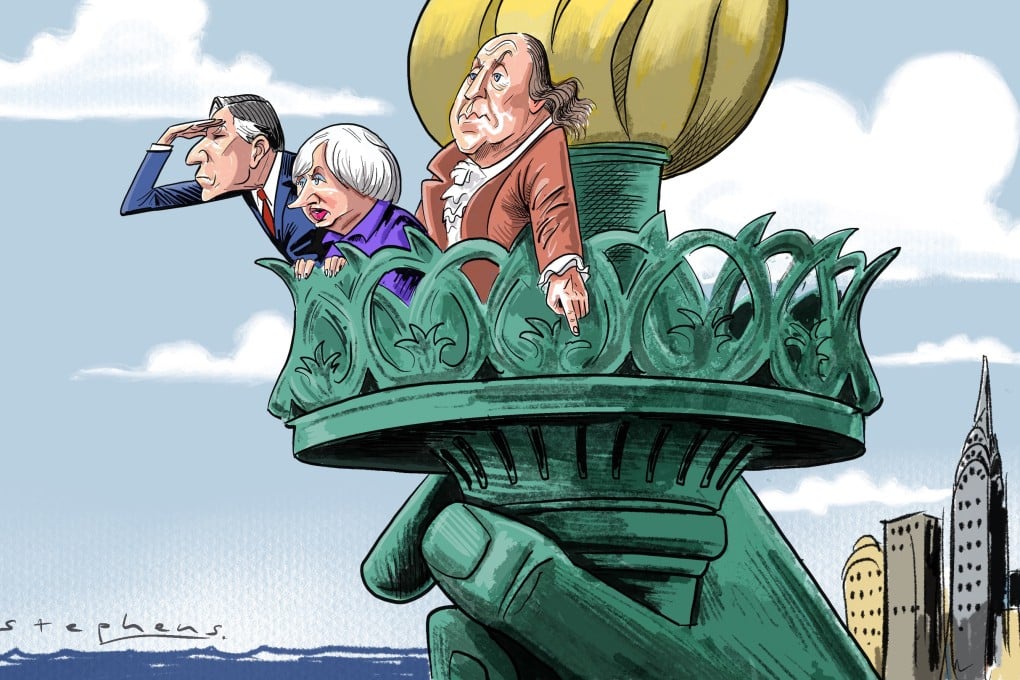Advertisement
Opinion | Why US diplomats seeking peace with China should look to Benjamin Franklin’s example
- We can’t know for sure how Franklin would counsel the likes of Janet Yellen and Antony Blinken, but a reasonable guess might be to become charitable and liberal in the cause of mutual good understanding
4-MIN READ4-MIN
5

As US Treasury Secretary Janet Yellen’s visit to China gets under way, the future of US-China relations teeters in the balance, with calls for war threatening prospects for peace. In that context, Christopher Blattman’s book, Why We Fight: The Roots of War and the Paths to Peace, argues that peace is the more rational option.
According to political scientist Lionel Beehner, the book explains “why war is hell, and is, as many economists have put it, ‘development in reverse’ … As such, peace is strategic. It pays.”
During US Secretary of State Antony Blinken’s recent visit to China, he recognised that humanity’s future depends in no small degree on cooperation between the two major powers, but there are obstacles to that end, such as misperception.
Advertisement
From Blattman’s book, you will learn that a chief cause of conflict is false assumptions about the perceived enemy. That is one reason for Yellen’s visit, but some ask how authoritarian and democratic nations can ever see eye to eye.
To a historian, that question and the attitude that drives it sound hopelessly dated. In the past, few people thought Christian and Muslim nations could ever see eye to eye. Christians viewed Muslims as immoral heretics while Muslims viewed Christians as infidels. Not much room for agreement there.
Advertisement
Back then, you were right or wrong not because of what you did or what you said but because of what you were. That, in a nutshell, is groupthink, a form of illogic that inspired endless wars and countless deaths throughout history.
Advertisement
Select Voice
Select Speed
1.00x
